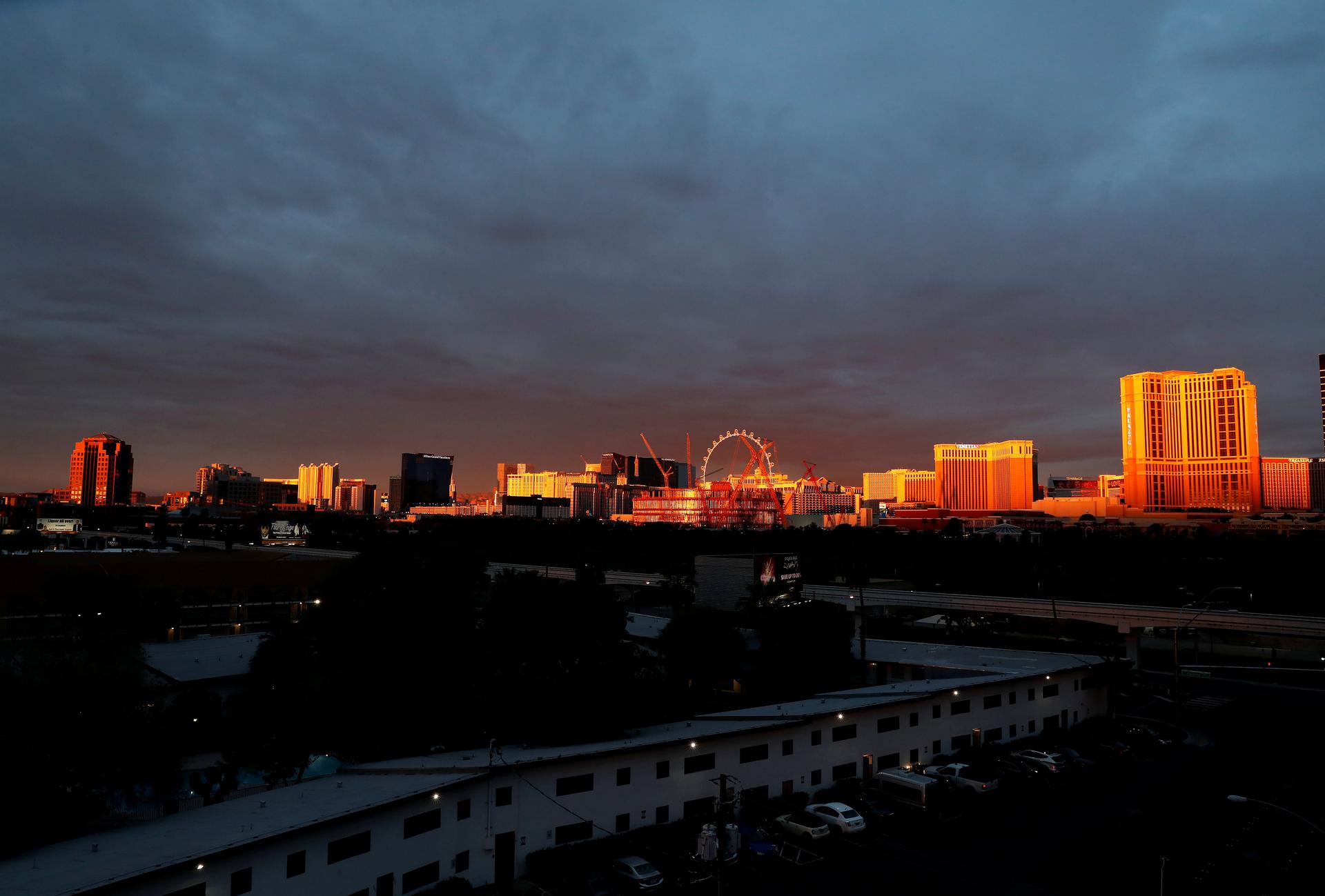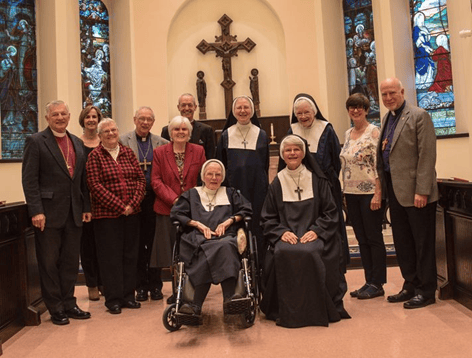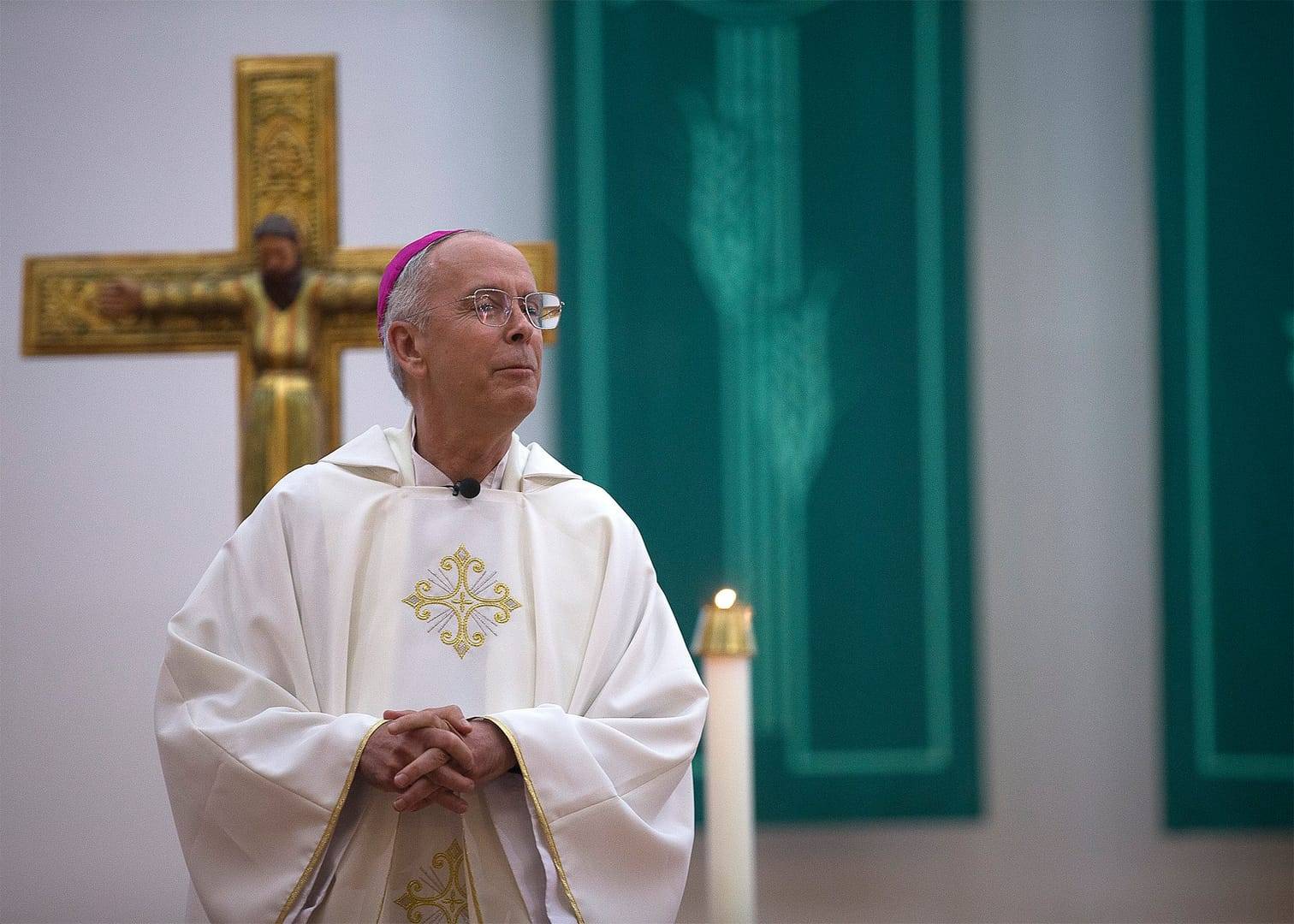LAS VEGAS — The bishop of Las Vegas asked any Catholic politician from the diocese who is “at odds” with church teaching upholding the sanctity of all life, from conception to natural death, to voluntarily refrain from presenting himself or herself for Communion while they hold public office.
“I place the onus of that decision upon the individual politician’s shoulders, and not on the backs of pastors or eucharistic ministers,” Bishop George Leo Thomas said.
He made the comments in response to a recent guest column in the Las Vegas Sun daily newspaper by U.S. Rep. Susie Lee, D-Nev., who identified herself as a Catholic and said she supports unrestricted “reproductive care.”
Lee “articulated a position that stands in stark contrast to the hallowed moral teaching of the Catholic Church. Yet she claimed ‘to have a deep understanding of the moral dilemma that the choice to have an abortion presents,” Thomas said. “Her ‘deep understanding’ is highly flawed.”
“As a Catholic politician, Lee is not alone in her selective and truncated understanding of the church’s moral and social teaching,” he added.
In a Jan. 24 statement responding to Lee’s column, the bishop recalled his inaugural homily as the new bishop of Las Vegas May 15, 2018, in which he set out “a blueprint for the Catholic Church in in southern Nevada.”
“I articulated the Catholic Church’s deepest conviction that all life is sacred, from the moment of conception until natural death,” Thomas said. “In a word, we believe that all persons, without exception, are unique and unrepeatable gifts from God. We hold that each is fashioned in God’s own image, and therefore, there are to be no throwaway people, no disposable souls and no second-class citizens.
“This conviction explains the Catholic Church’s reverence for unborn life, our care for the hungry and homeless, our investment in comprehensive adoption services, our support for lawful immigration reform, and our advocacy among the poor and vulnerable in the community.”
In the homily, Thomas said, he stated clearly that ‘we are a church that will never remain silent when human life is threatened, whether in the womb or on the deathbed.'”
“We will always assert a ‘preferential option for the poor’ as we apportion our resources and energy,” he added. “I hold that the unborn child must be counted among the most vulnerable in our midst.”
In his statement, Thomas quoted from Lee’s column, also dated Jan. 24: “Lee wrote, ‘I will always be a fierce advocate in the fight to ensure that women have the freedom to seek unrestrained and medically accurate advice from their doctors and make their own decisions about their health and their bodies. Protecting the right to safe, legal abortion will be an uphill battle, but I will never back down.'”
“Throughout her guest column,” he said, “Lee proffers her support for unrestricted reproductive care, without ever mentioning the consequences of her advocacy for the unborn child, over 60 million of whom have been annihilated in the womb since the enactment of Roe vs. Wade, 49 years ago.”
Lee’s column and the bishop’s statement come as the country awaits a decision by the U.S. Supreme Court in a case involving Mississippi’s ban on most abortions after 15 weeks: Dobbs v. Jackson Women’s Health Organization.
Many expect the court to overturn the 1973 Roe decision legalizing abortion nationwide, returning abortion law back to the states.
If Roe falls, 26 states are “certain or likely” to ban abortion, according to the Guttmacher Institute, which conducts research on abortion and reproductive health.
Others are looking to expand abortion access, like California, where legislators want to create a “sanctuary” for abortion if Roe is overturned.
In his statement, Thomas said the high court’s “much-anticipated decision regarding the constitutional right to abortion stands as a teachable moment for all of us, and most notably for Catholic pro-choice politicians.”
“It is my sincere hope that Catholic politicians and Catholics at large take this moment to look deeply into their own hearts, and reexamine the church’s moral conviction on the inviolability and dignity of human life,” he said.
Bishop Thomas pointed to the statement the U.S. bishops approved last November titled “The Mystery of the Eucharist in the Life of the Church,” calling its message “clear and compelling” …
“If a Catholic in his or her personal or professional life were knowingly and obstinately to reject the defined doctrines of the church, or knowingly and obstinately to repudiate her definitive teaching on moral issues, however, he or she would seriously diminish his or her communion with the church. Reception of holy Communion in such a situation would not accord with the nature of the eucharistic celebration, so that he or she should refrain.”
Thomas said he is always available to discuss this matter privately with Lee or any other Catholic politician “to whom this position applies.”
“Please be certain of my prayers for all who hold public office during these tumultuous and challenging times,” he added.















